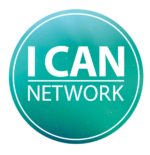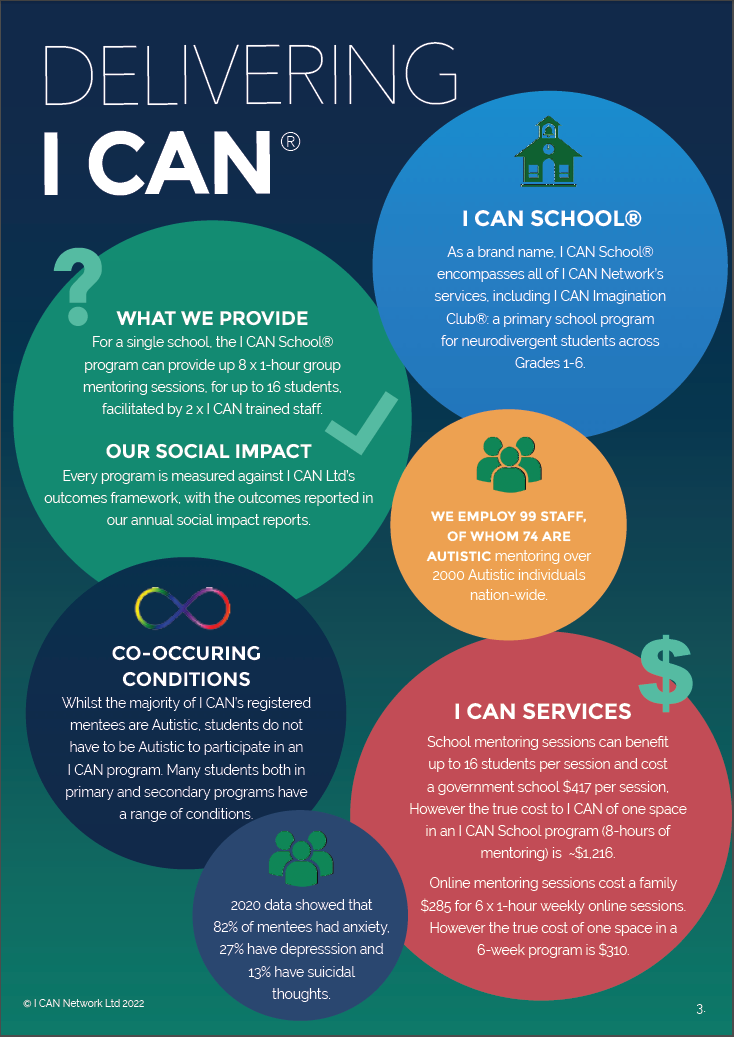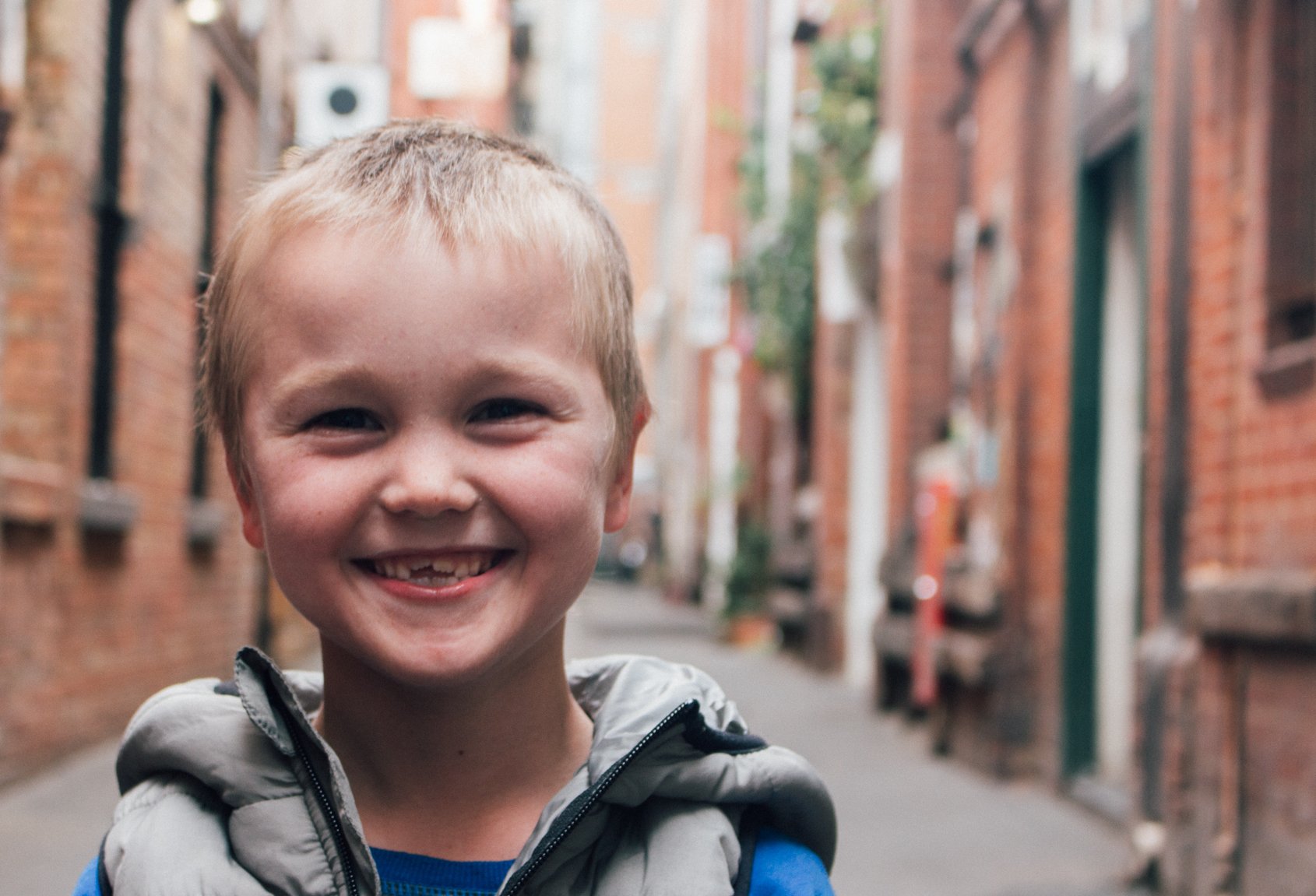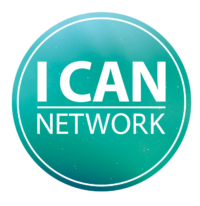
VICTORIAN EXPANSION PLAN 2023 -27
TERMINOLOGY
I CAN School® program refers to I CAN Ltd’s group mentoring program in schools inclusively, and can also specifically refer to our secondary school-based Autistic identity-focused mentoring. I CAN Imagination Club® refers to the primary school variation of the I CAN School® program which, to date, has been non-Autism specific. Click here or on the image to view full pdf. document.
UPDATE: I CAN SCHOOL® PROGRAM IN VICTORIA
I CAN Network’s school mentoring programs are strengthening participating students’ sense of belonging with peers at their school. I CAN is ready to expand its school programs within the context of achieving the Autism Education Strategy.
The 2022 independent evaluation of the I CAN Imagination Club and I CAN School programs by Australian Catholic University (ACU) indicated that 84.5% of primary students and 86.3% of secondary students were likely to recommend the program to another student. Primary and secondary students experienced statistically significant increases in their sense of belonging in the I CAN program. Autistic secondary students also experienced a statistically significant increase in their acceptance of their Autistic identity and engagement with the Autism/ Autistic community. This independent data is very similar to the internal data collected by I CAN which indicates a 91% satisfaction rate among primary students and a 19% increase in secondary students’ connectedness to Autistic peers.
ACU reported that the overwhelming majority of parent/ carer respondents (97%) said the I CAN School mentoring programs met their expectations, of whom 36.2% said it exceeded their expectations. This was the same for school teacher respondents: 90.6% said the program met their expectations, of whom 43.8% said it exceeded their expectations.
I CAN Ltd’s current partnership with the VDET from January 2020 to June 2023 is in support of DET’s investment in anti-bullying programs and the Autism Education Strategy. Our partnership is focused on involving 100 government schools and 1,000 government students in the I CAN School program and 500 government students in the I CAN Online program. As of December 2022, 80 school campuses across 75 Victorian government primary and secondary schools, and 906 students, have been involved in the school program; 711 students have been involved in the online program.
The below table demonstrates that I CAN is on track to engage 101 government schools by June 2023.

I CAN LTD. VICTORIAN EXPANSION PLAN 2023-27
EXPANDING OUR I CAN SCHOOL PROGRAM ACROSS VICTORIA
The idea of this proposal is that the I CAN School mentoring programs be made available to government schools across ALL 17 DET areas in Victoria. ACU’s report is testament to the impact of the program in all locations. As many schools repeat the program, I CAN Ltd forecasts that we could grow to deliver in-person and online programs across 265 government schools in all 17 regions by CY27. Our plan prioritises growth in secondary schools.

The financial commitment we would need to achieve this reach across schools, including for the Online expansion (refer below), is $4.1M (‘scenario 3’). Below we have provided three scenarios and an indication of what each scenario would achieve in terms of the number of government schools involved, program spaces offered, and the number of unique government students engaged.
Ensuring program quality: Spotlight on Surf Coast SC
The above growth has been designed with an eye on ensuring program quality. One of our top performing programs in 2022 was at Surf Coast Secondary College in which we facilitated statistically significant increases in students’ optimism (38%) and in students’ confidence with communication (38%). Surf Coast reported that, since the I CAN program, there had been a reduction in the number of times I CAN students visited the school wellbeing office. Surf Coast also reflected that ‘the sessions worked perfectly as an adjustment for the Disability Inclusion Profile process, particularly the ‘interpersonal interactions’ domain’. We want every program to have the best chance of achieving a similar high impact on Autistic young people and their school.
Pictured: Depiction of the Surf Coast SC I CAN group by one of its members Holly. The group called themselves ‘Chaos Survival Multiplayer’ (a Minecraft reference).

We measure our impact through our evaluation framework: we can see where our evidence base is strong and where our program needs consolidation. We’re confident that the scenarios put forward in this paper are responsible from a program quality and organisational capacity point of view.
Our forecast is also cognisant that there will be program variations across the diversity of schools. Moving forward, our standard program will be 8 x 1-hr sessions in a school term, with our annual AWETISM Expo used as an additional lever in Term 4 to support students’ self-esteem and optimism. Based on ACU’s recommendation, our primary I CAN Imagination Club will have a stronger focus on neurodiversity. In other areas like Ovens Murray, Mallee, Inner and Outer Gippsland, we will need to deliver school mentoring online. The timing of a school’s program will also influence its content. Moving forward, schools with programs in Terms 1 and 4, will enjoy a focus on transition.
“I really looked forward to the I CAN sessions because the people were friendly. They gave me time to use my [ACC] device to communicate… Chloe [mentor] was really good because she really made me feel comfortable. I hope we have an I CAN group at our school again soon. For me I CAN has helped me think about the things I like and what I am interested in.”
~ Adon (16), I CAN Mentee, Parkdale Secondary College
Government school uptake of our program is assisted by the phased roll out of Disability Inclusion (Tier 2) and the School Mental Health Menu. Whilst I CAN is now listed on the Mental Health Menu, we’re predicting that our growth will be the most concentrated in areas which have both Disability Inclusion and Mental Health Menu funding.
The growth scenarios put forward will increase the number of spaces the I CAN School program can provide to government school students. On average government schools utilise a minimum of 10 spaces (of 16) in any I CAN program. Scenario 1 will deliver a minimum of 5,000 program spaces, scenario 2 will deliver 6,800 spaces and scenario 3 will deliver 7,850 spaces. The number of unique student participants can be distinguished from the number of program spaces as some students repeat an 8-week program at least once and some regional schools have less than 10 students in a program. Taking all three scenarios into account, the range of unique students we will have engaged will be 2,325 – 3,525: scenario 1 will be at the low point of this range, scenario 2 at the midpoint and scenario 3 at the high point.
All three growth scenarios will help the I CAN School program be available to all 17 areas across the four VDET regions. All three scenarios will help the program expand to new areas like the Central Highlands in which we estimate we will have delivered programs across 19 government schools by 2027.
Below is the 2027 picture we envision under scenario 3 (below).
- By CY27 I CAN will be the most widespread in the Barwon area in which we estimate we will have delivered standalone government school programs across 11 primary schools, 12 secondary schools, 3 combined schools and 3 specialist schools.
- DET areas including Bayside Peninsula, Outer Eastern Melbourne, Western Melbourne, Brimbank Melton, Hume Moreland, Inner Eastern Melbourne, North Eastern Melbourne and Southern Melbourne will fall within a mega ‘Greater Melbourne’ region in I CAN’s structure. By CY27 we estimate we will have delivered standalone, online and inter-school school programs across 127 government schools in these areas.
- We will continue our scale up of inter-school programs to make our school program accessible to remote, rural and regional government schools. An inter-school program can involve 3-6 schools partnering together to facilitate a program for up to 16 x students. For instance, in Loddon Campaspe, we estimate that throughout 2023 – ‘27, we will have delivered inter-school programs across 3 primary, 2 secondary, 2 combined and 2 specialist schools.
Our proposal does not include the large number of schools we will engage through our professional development workshop content and how this will support the mandate of the Diverse Learners Hub.

I CAN ONLINE
The idea of this proposal is that Victoria make an I CAN Autistic Mentor available to every Victorian Autistic government student through the I CAN Online program. South Australia has made an Autism Teacher available to every public primary school. Victoria, through its Autism Education Strategy and Autism State Plan, can set a world-leading example, and make an I CAN Online Mentor available to every Autistic young person up to 18.
The idea is viable because I CAN Online is highly scalable. Annually I CAN Online delivers six cycles of six-weekly 1-hour online group mentoring sessions for up to nine young people in a group. Groups of nine are formed using either young people’s age, or their special interests such as Anime or Minecraft, or their stage in school (such as Year 7 Transition). Participants join via Zoom video conferencing. Parents/ carers register their young person for the online programs: the majority pay for the program using NDIS.
I CAN Online already has strong take up among government school families. Victorian government school students make up 61% of I CAN Online’s Victorian participants and 35% of participants nationally. This is why, under our current CFA with VDET, I CAN has exceeded its target of engaging 500 government students by ~42%. Specifically we have engaged 711 government students in the I CAN Online program throughout January 2020 to December 2022.
The idea is also backed by evidence. Successive independent evaluations of I CAN Online have indicated the positive impact of the program. ACU’s recent evaluation (December ‘22) indicated that 81.4% of mentees and 95.6% of parents/ carers were likely to recommend the I CAN Online program to others. ACU reported that Victorian Online participants experienced statistically significant increases in the areas of belonging, connectedness to peers, hope, and capacity to problem-solve to reach their goals. This independent data is very similar to the internal data collected by I CAN which indicates a 95% satisfaction rate and significant increases in belonging and connectedness to peers (18%).

IDEA: MAKING AN I CAN MENTOR AVAILABLE TO EVERY AUTISTIC GOVERNMENT STUDENT
I CAN forecast that we will grow to offer 4,344 online spaces to Victorian government students throughout 2023 to 2027. The below table breaks this down into an average number of students engaged per Online cycle and per calendar year. In a year like 2024, 732 students will be engaged as the average per cycle (122 students) can be multiplied by six given I CAN Online’s annual six cycles.

The unique number of government students engaged by I CAN Online will be within the range of 1,900 to 2,100. I CAN Online has a high retention rate (within the range of 44%-55% per cycle), with many students participating in several cycles. This is why the unique number of government students engaged through the 4,344 spaces will be within the range of 1,900 to 2,100.
I CAN LTD FINANCIALS
In the 2019 State Budget $1.5M was committed to I CAN Ltd for the following:
- $1.2M for the expansion of the I CAN Schools program to involve a total of at least 100 schools and 1,000 students (the growth model behind the 100 schools was 30% growth year-on-year from a baseline of 32 schools); and
- $0.3M to implement online group mentoring to 500 school-aged students.
I CAN Schools and I CAN Online are for-fee programs, with two trained I CAN staff delivering each group mentoring session (at least one of the two staff being Autistic).
- School mentoring sessions can benefit up to 16 students per session and cost a government school $417 per session. However the true cost to I CAN of one space in an I CAN School program (8-hours of mentoring) is ~$1,216.
- Please note that many rural government schools pool their students and budgets together to resource inter-school programs for up to 16 students per program.
Online mentoring sessions cost a family $285 for 6 x 1-hour weekly online sessions. However the true cost of one space in a 6-week program is $310.

WHY IS I CAN SEEKING INVESTMENT?
Whilst I CAN Ltd’s program fees cover its direct costs (mentor staff), they are not enough to cover its program management, administrative and systems development costs. To both maintain our programs and scale up our program with Victorian government schools and families we need investment in the following:
- Program management (program delivery, quality assurance, ongoing content development, etc)
- Evaluation and program impact measurement
- Marketing
- Human resources processes, staff compliance and training
- CRM and IT administration
- Finance and Business Analysis
- Staff management
- Support of CEO
HIGH-LEVEL SUMMARY OF GROWTH SCENARIOS WITH GOVERNMENT SCHOOLS/ STUDENTS: 2023 – 2027

REFERENCES
Jones, S., Lowe, J., Mizzi, S. (2022). Independent Evaluation: I CAN Network Mentoring Programs Final Report 15 December 2022, Australian Catholic University Research Impact Unit
- Attachment 1: I CAN School (Secondary) Data as of the end of Term 3 2022
- Attachment 2: Internal Data on I CAN Online Cycle 2 (Six-Week Cycle) in which 616 are Victorian government students
- Attachment 3: List of 79 schools involved in the I CAN School program 2020 – 2022
- Attachment 4: Report on I CAN Ltd’s 2021 Year 7 Mentoring Program (pp. 35-36)
Attachment 1:
I CAN School (Secondary) Data as of the end of Term 3 2022
I CAN School(R) programs overall
Satisfaction rate of 84% out of 139 mentees surveyed.
|
● 13% increase in ‘I feel confident in myself’ ● 22% increase in ‘I feel connected to other Autistic students’ ● 12% increase in ‘I feel positive about being Autistic’ |
|
● 13% increase in ‘I can give things a go that I find difficult’ ● 8% increase in ‘I have strategies to reduce my stress at school’ ● 13% increase in ‘I think good things will happen to me’ |
|
● 13% increase in ‘I feel confident communicating in front of other people’ |
Case study: Numurkah Secondary College
|
● 18% increase in ‘I can give things a go that I find difficult’ ● 14% increase in ‘I think good things will happen to me’ ● 35% increase in ‘I feel confident interacting with other people’ ● 40% increase in ‘I feel confident communicating in front of other people’ |
Case study: Parkdale Secondary College
|
● 32% increase in ‘I can give things a go that I find difficult’ ● 32% increase in ‘I have strategies to reduce my stress at school’ |
Case study: Surf Coast Secondary College
- 17% increase in ‘I feel positive about myself’
- 18% increase in ‘I feel confident in myself’
- 38% increase in ‘I think good things will happen to me’
- 38% increase in ‘I feel confident communicating in front of other people’
Attachment 2:
List of 77 schools involved in the I CAN School program 2020 – 2022
Target: Engage 1,000 Victorian government students in the I CAN SchoolⓇ program through 100 government schools over 2020 – 2023 (achieve 30% growth year-on-year).
Status of Government school programs in Greater Melbourne region
|
# |
School Name |
VDET Region |
Delivery |
|
South East Region |
|||
|
1 |
Cranbourne SC |
South East |
2020 – 2022 |
|
2 |
Alkira SC *Scholarship recipient from I CAN Network |
South East |
2021-2022 |
|
3 |
Cranbourne East SC *Scholarship recipient from I CAN Network |
South East |
2021-2022 |
|
4 |
Cranbourne West SC *Scholarship recipient from I CAN Network |
South East |
2021-2022 |
|
5 |
Parkdale SC *Scholarship recipient from I CAN Network |
South East |
2020-2022 |
|
6 |
Southern Autistic School |
South East |
2021 |
|
7 |
McClelland SC |
South East |
2022 |
|
South West Region |
|||
|
8 |
Hoppers Crossing SC |
South West |
2020 – 2022 |
|
9 |
Copperfield College Senior Campus |
South West |
2022 |
|
10 |
Melton Specialist School |
South West |
2022 |
|
11 |
Seaholme PS |
South West |
2022 |
|
North East Region |
|||
|
12 |
Kallista PS |
North East |
2022 |
|
13 |
Carlton North PS |
North East |
2022 |
|
14 |
Lilydale HS |
North East |
2020 |
|
15 |
Boronia K-12 College |
North East |
2020-2022 |
|
16 |
Eastern Ranges Autistic School |
North East |
2022 |
|
17 |
Ringwood SC *Scholarship recipient from I CAN Network |
North East |
2021-2022 |
|
18 |
Norwood SC |
North East |
2022 |
|
19 |
Montmorency SC |
North East |
2021 |
|
20 |
Macleod College |
North East |
2022 |
|
21 |
Hawthorn West PS |
North East |
2021-2022 |
|
North West Region |
|||
|
22 |
Thomastown West PS |
North West |
2022 |
|
23 |
Brunswick East PS |
North West |
2021-2022 |
|
24 |
Sydney Road Community School |
North West |
2020-2022 |
|
25 |
Lynall Hall Community School |
North West |
2021-2022 |
|
26 |
Fitzroy High School |
North West |
2022 |
|
27 |
William Ruthven SC |
North West |
2021 |
|
28 |
Northcote HS *Funded through Bendigo Bank grant |
North West |
2021-2022 |
|
29 |
The Pavilion School |
North West |
2022 |
Status of Government school programs in Northern Victoria region
|
# |
School Name |
VDET Region |
Delivery |
|
North East Region |
|||
|
30 |
Numurkah SC |
North East |
2020 – 2022 |
|
31 |
Waaia-Yalca South PS |
North East |
2021 |
|
32 |
Wunghnu PS |
North East |
2021 |
|
33 |
Numurkah PS |
North East |
2021 |
|
34 |
Gowrie Street PS |
North East |
2021 |
|
35 |
Greater Shepparton SC – Wanganui Campus |
North East |
2020-2022 |
|
36 |
Greater Shepparton SC – McGuire Campus |
North East |
|
|
37 |
Greater Shepparton SC – Mooroopna Campus |
North East |
|
|
38 |
Euroa SC (funded by SFYS and I CAN scholarship) |
North East |
2021-2022 |
|
39 |
Wooragee College *Scholarship recipient from I CAN Network |
North East |
2021 |
|
North West Region |
|||
|
40 |
Crusoe College *Funded through SFYS |
North West |
2022 |
|
41 |
Lightning Reef PS *Funded through SFYS |
North West |
2022 |
|
42 |
Weeroona College *Funded through SFYS |
North West |
2022 |
|
43 |
Kyabram P-12 College (Primary) |
North West |
2021-2022 |
|
44 |
Kyabram P-12 College (Secondary) |
North West |
2021-2022 |
|
45 |
Echuca College |
North West |
2021-2022 |
|
46 |
Echuca Twin Rivers Specialist School (Primary) |
North West |
2020-2022 |
|
47 |
Echuca Twin Rivers Specialist School (Secondary) |
North West |
2020-2022 |
|
48 |
Echuca Twin Rivers School |
North West |
2021-2022 |
|
49 |
Echuca PS |
North West |
2021-2022 |
|
50 |
Echuca East PS *Funded by SFYS |
North West |
2021-2022 |
Status of Government school programs in South West Victoria region
|
# |
School Name |
VDET Region |
Delivery |
|
South West Region |
|||
|
51 |
Bolwarra PS |
South West |
2021-2022 |
|
52 |
Portland Bay PS *Portland Cluster I CAN Imagination Club is a scholarship recipient from I CAN Network |
South West |
2021-2022 |
|
53 |
Portland PS |
South West |
2021-2022 |
|
54 |
Portland North PS |
South West |
2021-2022 |
|
55 |
Narrawong District PS |
South West |
2021-2022 |
|
56 |
Bundarra PS |
South West |
2021-2022 |
|
57 |
Heywood Consolidated School |
South West |
2021-2022 |
|
58 |
Dartmoor PS |
South West |
2021-2022 |
|
59 |
Baimbridge College |
2022 |
|
|
60 |
Warrnambool PS |
South West |
2021-2022 |
|
61 |
Merri River School |
South West |
2021-2022 |
|
62 |
Warrnambool College |
South West |
2020 |
|
63 |
Terang College |
South West |
2020 |
|
64 |
Derrinallum P-12 College |
South West |
2021-2022 |
|
65 |
Hawkesdale P-12 College (Senior School) |
South West |
2020-2022 |
|
66 |
Hawkesdale P-12 College (Junior School) |
South West |
2020-2022 |
|
67 |
Koroit & District PS |
South West |
2022 |
Status of Government school programs in Barwon Victoria region
|
# |
School Name |
VDET Region |
Delivery |
|
South West Region |
|||
|
68 |
Leopold PS |
South West |
2021 |
|
69 |
Geelong HS |
South West |
2021-2022 |
|
70 |
St Leonards PS |
South West |
2022 |
|
71 |
Roslyn PS |
South West |
2022 |
|
72 |
Barwon Heads PS |
South West |
2022 |
|
73 |
Geelong East PS |
South West |
2022 |
|
74 |
Surf Coast Secondary College |
South West |
2022 |
|
75 |
Tate St PS |
South West |
2022 |
|
76 |
Rollins PS |
South West |
2022 |
|
77 |
Nelson Park School |
South West |
2022 |
Attachment 3:
Internal Data on I CAN Online Cycle 2 (Six-Week Cycle) in which 35% were Victorian government students
|
● 19% increase ‘I enjoy meeting other people in my group’ ● 16% increase ‘I don’t have to hide who I am in the group’ ● 14% increase ‘I feel I can chat/ share with other people in my group’ |
Attachment 4: Case study I CAN Year 7 program in Echuca
Throughout 2021, we have been working with all primary and secondary schools in Echuca in various contexts (four primary schools, two secondary schools and a specialist school). We ran inter-school programs with these schools including a secondary mentoring program, I CAN Imagination ClubⓇ and a Transition Program. We worked closely with schools in Echuca to develop programs which suited the needs of the students and schools. We have also worked closely with the CCLLEN (Campaspe Cohuna Local Learning and Employment Network) and received the continuing support of SFYS. Working closely with these organisations which are already actively involved in Echuca schools has helped us to develop strong relationships in this town.
In Echuca, we were able to start our face-to-face mentoring in Term 2. However, these were suspended in Term 3 due to lockdowns and remote learning. We found that Echuca schools were reluctant to deliver their programs online as they faced a very unpredictable time of moving in and out of lockdowns. The result of this was that we were unable to follow through on any of our plans for onsite delivery over 2021. Furthermore, we found that Term 4 was an overwhelming time for schools with the students’ staggered return to onsite attendance. These circumstances have resulted in some mentoring programs running some sessions over 2022.
Despite this, we have been successful in pioneering a transition program for Year 6 students in Echuca entering St Joseph’s College or Echuca College in 2022. These transition programs involve bringing together Year 6 students from primary schools in Echuca with I CAN mentors and a Year 7 student and staff member from the secondary school. The sessions were held online, and students were grouped according to the secondary school they will attend next year. The content of the sessions included information about the secondary schools, discussions and activities designed to build confidence, resilience and value individual differences, and time for the Year 6 students to share their thoughts, feelings and questions about Year 7 and the school. Despite being in the pilot stage, the transition program is already making a positive impact on mentees’ preparedness towards Year 7.
Figure 9: satisfaction rate of mentees in Echuca transition program
Figure 10: distribution of responses to statements before and after the transition program
The Echuca transition program was positively received by all mentees (Figure 9), with positive changes seen among mentees (Figure 10). The transition program clarified support structures for mentees, making them look forward to Year 7 next year. There was a 15% increase in mentees feeling that they have someone who can support them in their transition to secondary school. Mentees felt more comfortable about the transition to secondary school compared to before the program (31% increase in ‘Yes’ responses) and looked forward to Year 7 next year (17% increase in ‘Yes’ responses). Collectively, these results highlight the value of running transition programs for Year 6 neurodivergent students who face numerous challenges in their transition to Year 7, particularly those from regional areas.
Comments from mentees in the transition program back up the positive quantitative results. Mentees appreciated meeting Year 6 students from other primary schools who will be coming to the same secondary school as them next year. By meeting other Year 6 students, mentees knew who is coming to the same secondary school and who they are, strengthening social connections which are important for supporting their transition to Year 7. These points are best summarised by one mentee who said that the program allowed them to ‘…meet new people and get to know them a lot’. The program also gave mentees the opportunity to learn more about their secondary school which enhanced their confidence on entering Year 7 next year.
